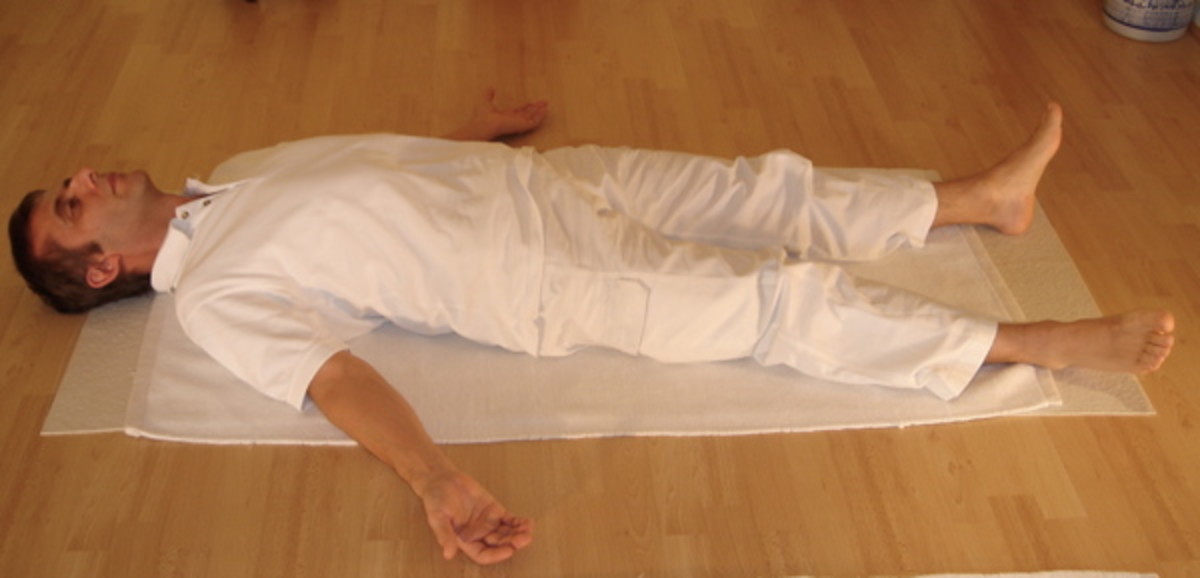Can Yoga Help In Multiple Sclerosis
What is multiple sclerosis?
Multiple Sclerosis (MS) is an autoimmune disorder which affects the brain and the spinal cord. During this disease, the immune system or the body’s defense mechanism starts attacking the myelin sheath, which protects the nerve cells. Myelin is an insulating layer made up of protein and fatty substances and it allows the transmission of impulses along the nerve cells in a fast and efficient manner. The damage to the myelin by the auto-antibodies, during MS, slows down the transmission of nerve impulses. As a result, the messages between the brain and the rest of the body get blocked. This disease was first described by Jean-Martin Charcot in 1868. As actions of the body are controlled by the central nervous system and MS effects the CNS, symptoms of this disease can be reflected in different actions of our body.
Symptoms of Multiple Sclerosis
Most commonly visible symptoms are pain and numbness in limbs accompanied by weakness and tingling sensation in some parts of the body. Painful contractions of the muscles (muscle spasm) lead to stiffness and lack of movement in the muscles. Fatigue that is a feeling of tiredness and exhaustion is usually felt by these people, which makes them incapable of performing their normal activities. These patients experience difficulty in emptying their bladder and also suffer from constipation. Some patients suffer from blurred vision or double vision especially when the optic nerve is affected. As the muscles become weak, patients of MS show an unbalanced walking style. Some patients become intolerant to heat and often enter into a stage of depression.
Yoga
Even though yoga and yogic exercises have originated thousands of years ago, its significance in our daily life has been completely understood only since the 21st century. Yoga aims to unite the mind, spirit and body. Yoga is not only important for physical health, but also helps to maintain mental and emotional health. Yoga helps to improve the quality of life in many life threatening diseases like cancer and multiple sclerosis. It improves the physical activity and removes stress and tension during these diseases. Yoga doesn’t cure a disease but, its postures and breathing help one to understand the body well and makes one feel better.
Benefits of yoga in Multiple Sclerosis
The benefits of yoga in multiple sclerosis have been well researched and many patients of MS have experienced the benefits of yoga in their daily life. Yoga mainly targets the following symptoms of multiple sclerosis, which are heat sensitivity, fatigue, loss of coordination and numbness in limbs, loss of balance and flexibility and depression. The basic stretching and breathing exercises (pranayama) involved during yoga improves circulation and relieves stress. These breathing exercises not only increase the awareness of the body but also release the muscle tension in MS patients. Yoga helps to reduce fatigue, which is the most commonly associated symptom of MS, as unlike other exercise programs which involve expenditure of energy, yoga involves conservation of energy. This reduces fatigue significantly. Restorative postures like Virabhadrasana I (Warrior Pose I), Tadasana (Mountain Pose), Virabhadrasana II (Warrior Pose II), and Trikonasana (Triangle Pose), have been found to be very effective in reducing heat sensitivity and fatigue in MS patients. These yogic exercises keep the nervous system calm and harmonize the muscular movements and nervous system. The asanas increase the flexibility and balance. The yogic exercises have a potential to stimulate the body’s own self-healing mechanism. Depression is a mental state which usually arises when the person looses the feeling of well-being. As yoga has the power to act on the mind and create a feeling of well being, it has the potency to lift depression associated with MS. If yoga is practiced regularly under a well trained instructor, it can act on multiple body systems. It improves digestive system and relieves the person from the problem of constipation. It strengthens the respiratory system and enhances the immune system. It improves the problems associated with lack of mental clarity and balance. The stretching postures of yoga do not allow the joints to become stiff and muscles to become weak.
Conclusion
Yoga can be practiced by anyone anywhere, even by a person on a wheel chair. Yoga postures can be personalized to meet individual needs. Iyengar yoga, which is a form of Hatha yoga and Ananda Yoga, have shown proven benefits in MS patients. The restorative poses, breathing techniques and meditation together provide therapeutic benefits to MS patients. The best part of yoga exercises is that they do not require fancy costly items and have very few recorded side effects. However, care should be taken to learn these exercises from trained personnel and difficult postures should be attempted with caution. Yoga cannot replace the conventional medicines; rather it improves the quality of life and creates a feeling of well being even in diseases like Multiple sclerosis.
My Sources of Information
http://www.yogatherapyireland.com/yoga_ms.html
http://www.everydayhealth.com/multiple-sclerosis/how-yoga-helps-multiple-sclerosis.aspx
http://www.sciencedaily.com/releases/2004/06/040610074705.htm








